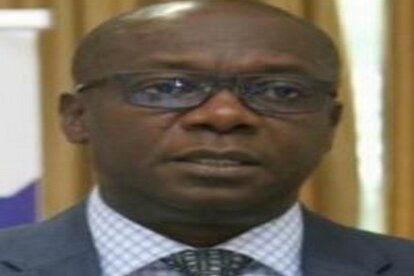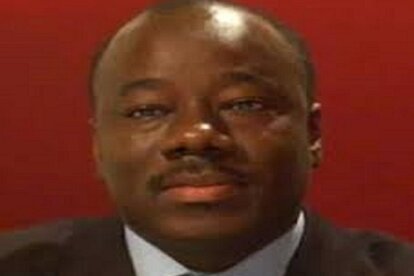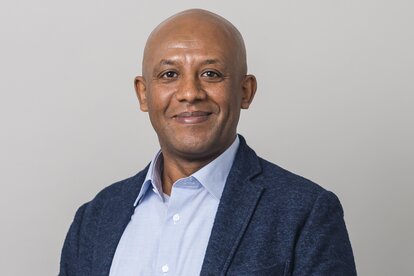Our purpose in this short blog isn’t to create a big chunk of controversy (read: click bait). Nor is it coming from Africans claiming to know better than others (read: foreigners/non-Africans). Simply, the aim is to re-emphasize that understanding Africa’s development priorities and taking adequate and right actions require breaking the remarkably persistent narrative created of Africa which says that it’s a “hopeless continent” – that is, the gloom and doom.
Binyavanga Wainaina satirically and brilliantly summarized how Africa is pictured in the eyes of others in his seminal work: “How to Write About Africa”. Over the years, Africa has been the victim of much misinterpretation. Its problems are exaggerated or inadequately analyzed; achievements are credited to outsiders or treated with disregard compared to the challenges faced by the continent; and claims are accepted without being questioned.
We feel that Africa has been at the receiving end more often and for long – that everyone from the outside is “eager to train” and “ready to aid” Africans even sometimes without adequate appreciation of the issues confronting the continent and recognition of progress to-date.
In the words of novelist Chimamanda Adichie, there’s a serious danger of a single story. Never mind that it’s a continent made up of 55 countries with complex social, historical, political and economic landscapes.
In this blog, we pick up arguably the most difficult subject matter of good governance in Africa. We provide six concrete examples, of course cherry picking from different corners of Sub-Saharan Africa, on how good governance has led to some remarkably but budding development initiatives. The evidence is growing even though it needs to be substantiated.
We define, narrowly and with the risk of over-simplification, governance along the World Bank’s understanding of “the manner in which power is exercised in the management of a country's economic and social resources for development…. or simply governance as sound development management.”
Ethiopia: improved health outcomes
The government of Ethiopia has been highly committed in rolling out one of the most innovative community-based health programs in Africa. This has made health services accessible to rural communities by transferring health knowledge and skills to households.
The program has, from the start, strong political commitment from the highest level of government. Concrete actions include covering the cost of the design of the program and curriculum development and training, as well as ensuring that the Health Extension Workers remain civil servants with defined career development.
The results?
There have been significant improvements in maternal and child health, communicable diseases, hygiene and sanitation, knowledge and health care. An army of close to 40,000 health extension workers since 2003 increased the access to health services to the rural population. Two decades ago, one health professional was covering 24,000 people which substantially improved to one health professional serving 2,400 people in 2018. Not just that: Ethiopia's maternal mortality declined from 750 to less than 300 per 100,000 live births, and under-five mortality is 72% lower now than it was twenty years ago.
Rwanda: gender equality
Rwanda has been a shining example even to developed and rich countries like Switzerland and Japan. Women make up 61% of seats in parliament (the highest in the world) and 50% of the cabinet and half of the supreme court judges. This happened not by chance but because of actions by Rwanda’s policy makers who introduced a quota in 2005 to bring more women into leadership positions.
What is important is such a change contributed to more and more laws promoting women’s rights. In addition, the promotion of gender equality has had positive impacts on the business sector. There are now more women in business leadership positions, such as the CEOs of the government-owned airline RwandAir and the Bank of Kigali are women. Also, women now have equal inheritance rights. All these initiatives have for sure inspired new generations of women leaders.
Rwanda has re-created itself as a country and led by good examples of gender equality. A key lesson here is, to challenge institutionalized and legitimized exclusion in policy making and laws, we need to think and work politically. Different formal legislations control or constrain women, and this is how Rwanda managed to crack the glass ceiling.
Ghana: decentralization and local economic development
Ghana has been able to bring the work of central government closer to the people through empowering Metropolitan, Municipal and District Assemblies (MMDAs). The Ghanaian Parliament passed Local Government Instrument 1961 to devolve key sectors and functions from the central government to the MMDAs.
The decentralization effort aims at giving “voice” to citizens and putting them at the center of determining priorities in local governance. If one takes the power to generate revenue internally as an example, the establishment of the District Assemblies Common Fund to some extent has enabled the MMDAs to provide basic infrastructure in the field of education, health, water, transport and sanitation. Today, the 254 MMDAs set local priorities and fund them through their Common Fund as well as their internally generated revenue. This has significantly contributed to local economic development and service provision in an improved way.
Indeed, a closer look at the decentralization efforts suggest that reforms that could transform the ability of local governments to provide services are being pursued with less vigor. Capacity challenges remain in the areas of preparing and executing district development plans and budgets. As well, fiscal decentralization is yet to be fully completed.
Kenya: financial inclusion
The development of the financial sector in Kenya is exemplary in Africa and beyond. It has enabled the county to achieve 82% of financial inclusion among its people – this means, 8 in 10 Kenyan adults held a registered account with a formal financial institution. And mobile money like the innovative M-Pesa continued to lead in terms of access and account registration.
Financial inclusion was initially a public policy objective. The government, through the Central Bank of Kenya, relied on the private sector to take it forward. This in practice required two policy initiatives.
First, undertaking legal and institutional reforms has contributed to making the financial sector more competitive through promoting high-levels of savings and financing investment needs.
Second, the value of mobile money transactions in 2018 was equivalent to 44% of the GDP in Kenya. This is huge that involves safeguarding financial system stability as an integral part of preserving monetary and macroeconomic stability.
Botswana: investment and savings
Heard of the Dutch disease? Simply, it’s an economic impact that occurs when a country experiences a sudden large increase in income like the discovery of minerals or oil. In the 1960s, the Netherlands experienced a vast increase in its wealth after discovering large natural gas deposits in the North Sea. The discovery contributes to stronger currencies, making non-oil/mineral exports more expensive and, therefore, less competitive.
Botswana’s economy has been mineral-based. Mineral revenues will at some point start decreasing in the next decade due to depletion. The government of Botswana has been making inroads towards planning the future without diamonds.
Sound macro-economic management through investment and savings makes Botswana different from other mineral-rich countries of Africa that have squandered vast amounts of their natural wealth. Building on the Tswana tribal tradition of consultation called kgotla, Botswana was able to create a high degree of transparency and trust in the government to serve the people and promote development.
This has led to significant reduction in corruption; the country is ranked 34 out of 175 countries in the world, making it the least corrupt country in Africa compared to countries like Nigeria (ranked 148).
Senegal: human development through education
The single most source of development for Senegal has been its human capital. Education, built on quality, equity and good governance, has served as the driving force to Senegal’s economic and social development.
Senegal has invested in its education through a series of reforms since the early 2000s. The reforms include increasing access to basic education, improving the quality of learning and making the education system management more efficient. For example, about 40 % of the national budget is spent on the education sector.
The big picture
We’re aware of the many problems that African countries face and that our examples are just a drop in the ocean. What does it then take for the examples that we have provided above to be leveraged – for a sustainable and scalable development goals?
Two critical points are worth considering.
Shift from tradition to transition and then transformation
Perhaps an easier way to describe the complexity of governance systems in Africa is to use the tradition-transition-transformation example. By tradition, we mean the many elements of bad governance – ranging from corruption to autocracy and personal rule, and lack of accountability. Most countries in Africa are at this stage.
The examples we gave above are at the transitional level characterized by reforms to improve governance systems and the impacts of the reforms on development initiatives.
It’s essential that we use as leverage the above examples to stimulate the shift towards transformation – structural changes and the existence of legitimacy. In other words, it’s development as freedom that requires “the removal of major sources of unfreedom: poverty as well as tyranny, poor economic opportunities as well as systemic social deprivation, neglect of public facilities as well as intolerance or overactivity of repressive states.”
Development as a multi-stakeholder initiative
The examples that we provided above are “islands of success”. The shift towards transformational change requires seeing development as a multi-stakeholder initiative. We need to ask ourselves: who’s best fit to do development under what kind of context?
Increasingly, it’s becoming apparent that working in partnerships matters a lot. It involves not only the public sector, but also the private sector, development organizations, and other civil society organizations. For example, the role of civil society in tackling deficits of good governance through stimulating active citizenship and political participation cannot be discounted despite the shrinking space for civil society organizations.
For the above to materialize, first, a new generation of leaders and not rulers, who’re bold, visionary and accountable, is highly needed. This isn’t limited to the highest level of governments but should include more business innovators and leaders of civil society organizations.
Second, the role of the international community needs to also be redefined. The search for durable solutions for the challenges is shifting slowly but surely away from the “we will help you” approach to “we contribute” and “we learn” from your experience.
Additional sources
- How to Write About Africa
- Africa rising
- Arising Africa: challenges and perspectives for a young population
- Enterprising Africa: Leading into an Ongoing Dialogue
Cover photo: courtesy of Face of Africa




